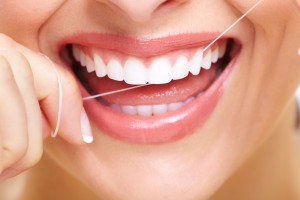5 Easy Ways to Improve Your Oral Health
Despite society becoming more health conscious every year, oral health is still sometimes overlooked. Many people do not think much about oral care and hygiene until serious problems develop. For dentists, this can be frustrating as a significant number of common dental problems are in fact preventable. Here are five ways you can improve your oral health easily.
- Drink plenty of water alongside a varied diet
Eating a variety of foods and drinking plenty of water not only benefits your overall well-being but also your dental health. Poor nutrition can have a significant impact on a body’s natural defenses and it has been found that people with lowered immune systems are at a higher risk for some oral health diseases.
Reported to be more effective than using mouthwash, water actually helps flush teeth clean and discourages tooth decay. Drinks such as red wine, coffee and tea can have an adverse effect on teeth, creating a superficial stain as well as potentially causing an internal stain on the tooth enamel as well. Rinsing your teeth with water after consuming these drinks helps stop the liquid sitting on your teeth.
- Brush your teeth with the proper equipment
Toothbrushes should be changed regularly, at least every couple of months or sooner if the bristles start to splay and wear out. A worn toothbrush does not clean as adequately as needed to prevent tooth decay and gum disease (gingivitis).
It has been claimed that brushing with an electric toothbrush removes more plaque and helps to lessen the risk of gingivitis than a manual toothbrush. The rotating and oscillating head of an electric toothbrush can provide an especially effective way of cleaning teeth for people who find it difficult to clean all teeth surfaces due to a disability or arthritis. Some children are more enthused to brush their teeth regularly and proficiently with an electric toothbrush due to the novelty.
- Improve tooth brushing technique
While most people understand the need for daily tooth brushing, the actual technique is often overlooked. Tooth brushing ideally takes place after each meal and uses just a pea-sized amount of toothpaste. Angle the bristles of the brush at a 45 degree angle up to the gum line and move the brush back and forth with short strokes, focusing on one or two teeth at a time. Allow the bristles reach into spaces between teeth as well as all the grooves and crevices. Avoiding scrubbing.
Toothbrushes should always be rinsed after use and stored in an upright position to air dry. Covering toothbrushes may lead to a growth in bacteria. Dentists usually recommend brushing teeth with soft-bristled brushes, as it is easier to damage tooth enamel with hard-bristled varieties.
- Floss in addition to brushing
Your daily oral health routine should involve flossing if it does not already. Cleaning between your teeth with dental floss or tape removes food particles and plaque that is hard to reach with a toothbrush. Eliminating food debris and plaque around teeth helps to avoid tooth decay and gums becoming infected and sore. The ideal time to floss is after each meal, when plaque is soft and therefore removed easily. If the plaque hardens, it can harden into tartar, something that can only be removed by the dentist.
Be prepared that your gums may be sore the first few times after flossing; this should stop after your oral hygiene has improved. If it doesn’t, seek professional advice.
- Visit a dentist regularly
For some people, visiting a dentist is something you only do when tooth pain or discomfort occurs. Dentists have a lot more to offer, especially regarding preventative care. Routine dental exams and cleanings are a vital part of maintaining good oral health in addition to your own at-home oral hygiene routine. Early detection of dental problems can help to avoid invasive treatment later. Dental hygienists not only perform routine cleanings to prevent periodontal (gum) disease but they also screen for important health conditions such as oral cancer. Your dentist can also advise you on proper flossing and brushing techniques to improve your at-home routine.
Taking care of your teeth and gums can significantly improve your overall health. Taking the care to brush teeth properly, floss regularly, drink plenty of water and visit the dentist are relatively easy fixes with potentially big results. Making these small changes to your lifestyle may prevent serious health issues further down the line.
Tags: Brush your teeth, Dental Floss, Improve tooth brushing technique, Oral Health information, Visit a family dentist

Recent Comments